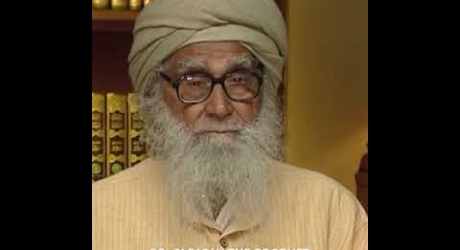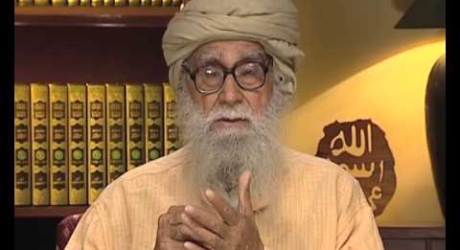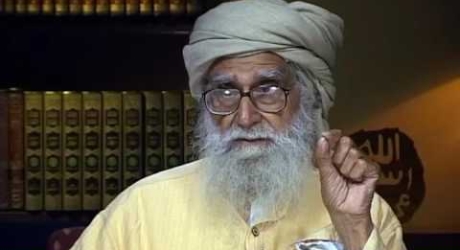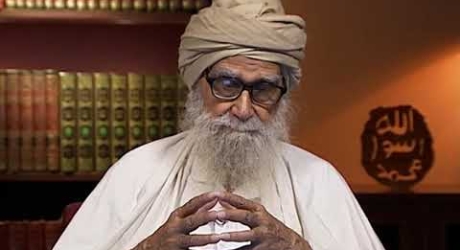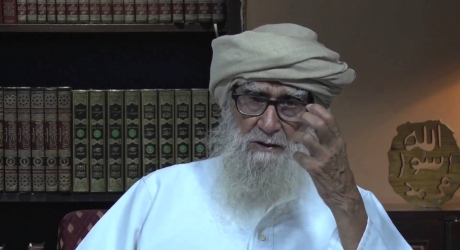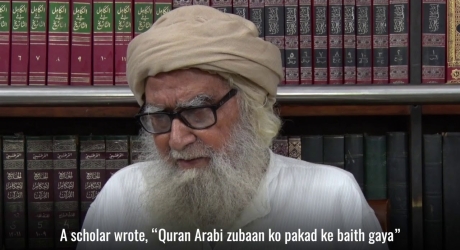We learn from a tradition of the Prophet that if a believer makes right ijtihad (re-interpretation of religious teachings in changing situations), he will receive a double reward, while if he errs in his ijtihad, he will still earn a single reward. It is sufficient to follow past precedents or traditional thinking when one engages in the work of preservation. However, to engage in intellectual leadership, one must possess a deeper understanding of the times and the capacity to engage in ijtihad, creative interpretation of Islamic sources and their application in changed circumstances. To perform the role of intellectual leadership, the Ulama must possess a deeper understanding of the times and the capacity to engage in ijtihad, creative interpretation of Islamic sources and their application in changed circumstances. Then they will be able to engage in scholarship, reform the minds of the Muslim ummah towards correct thinking and undertake dawah work, conveying God’s message to people.
Introduction
I would like to begin with a famous Hadith, which giving prediction of the days to come relates that Islam was strange when it started and it shall become so again
Glad tiding for the strangers (Sahih Muslim)
The word ‘strange’ does not connote a mysterious meaning. This Hadith conveys that as per the law of nature, Islam will become unknown again. Describing this law, a Western Scholar said
Every religion begins as an ideology and is later reduced to history.
This is a universal law and it operates at both secular and religious levels. Let me illustrate with examples the phenomena that recedes a flourishing ideology into oblivion.
Examples from history
The instances of violence perpetrated by Maoists get reported on a daily basis. The founder of Maoist ideology was Mao Zedong, a communist leader of China (d. 1976). He ardently believed that revolution can be brought about through propagation of violence and believed that power flows from the barrel of the gun. Till date, Maoists continue with this ideology without seeking its re-application in the modern context (ijtihad).
On the other hand, China provides a parallel example of re-application of this theory in changing times. Death of Mao Zedong saw the emergence of a leader called Deng Xiaoping (d. 1997). The biggest contribution of Xiaoping was that he separated the economy of China from its political system. This led to stupendous development and flourishing of industries in China and Deng Xiaoping became famous as the Architect of Modern China. In other words, Deng Xiaoping could do ijtihad and reapply the communist ideas in the present age; whereas the Maoists, continuing on the primitive version of the theory continue to be involved in resultless struggle. Similar to the Maoists is the case of the present-day Muslims. The Muslim Ulema could not interpret the teachings as per the modern idiom and hence failed to perform ijtihad.
Meaning of Ijtihad
Ijtihad refers to re-application of Islamic principles in changing times. The new scientific age necessitated that ulema re-think and interpret Islam in the modern idiom. But they failed to do so. Due to this lacking, Islam came to be regarded as an anachronistic ideology. According to a recent news report, an American pastor planned a bonfire of Quran on September 11, 2010. Such outrage was the outcome of the infamy that Islam has garnered on account of gross misinterpretation of its teachings. Islam is seen as a religion that encroaches upon man’s freedom of expression.
It was the emergence of democracy, which provided the right of freedom of expression to its adherents thus ushering in an era which demanded re-thinking and re-application of principles. But the Muslim scholars failed to avail this opportunity as they could neither fathom the demands of the modern world and nor could they undertake ijtihad. The ulema wrongly construed that only the Imams in Abbasid period were allowed to do ijtihad and the common man must restrict his thinking within the realms laid out by previous jurists. In other words, the option of the common man doing ijtihad on new aspects was unfeasible and ijtihad was reduced to being an emulation of the previous example or precedence (juziyya). Ijtihad therefore was done only on minor issues. For example, a person did extensive research to find if taking an injection breaks the fast or not? He found out that as per a previous fatwa the fast of a man who got stung by a scorpion was considered valid. The researcher used this analogy to cite that injection (as external to the body as venom) does not break the fast. It is the failure of ulema to do ijtihad on bigger issues, which cast the community into a blind alley.
Dawah work: real focus of Islam
It is unfortunate that the present-day Muslims do not follow the original Islamic ideology but have developed adherence to a culture, which is a derivative of history. I say so because Islam started as a dawah mission but during the Abbasid rule, its orientation altered and establishment of political glory became the pursuit of Muslims. A famous Arab writer visited the ruins of Muslim civilisation that inhabited the region of Andulasia (Spain). The writer was overwhelmed upon seeing the remnants of the erstwhile political grandeur of the Muslims. He felt so strongly about it that he wrote an article entitled, “How long will this Arab night last?” It is a glaring example of thinking of present-day Muslims who continue to be entrapped in an imaginary past even though all possible opportunities exist for them in the modern world, waiting to be tapped!
Unlike the present-day Muslims, the focus of the Prophet and his Companions was dawah work. This can be understood from the following tradition of the Prophet Muhammad in which he said to Ali,
If a person receives guidance through you, it is better than anything on which the sun rises.
(Ibn Asakir)
However, as generations elapsed the Muslims lost sight of dawah work and made attainment of political rule as their goal. Let me cite an example to illustrate the importance of dawah work as it were in the period of the Prophet and his companions. A Governor of Caliph Umar bin Abdul Aziz tried to dissuade him out of dawah work by saying that as people embraced Islam, it adversely impacted their treasury. Furious at his ill-judgement, Umar bin Abdul Aziz replied,
Woe betide you. Prophet Muhammad was sent as a guide and warner, not as a tax collector.
Another common perception amongst the present-day Muslims is the notion of greatness of Islam in terms of the history of its political expansion and the wars – fought and won. Once a Muslim scholar was asked about the model proffered by Islam at a time when the Muslims exist in minority; he paused and said, Islam has the model for position of strength but does not have a model for position of modesty. This statement was absolutely incorrect and is a glaring example of the misunderstandings associated with Islam.
Islam is a religion of modesty and the life of the Prophet Muhammad demonstrates the importance he subscribed to this virtue. Modesty was so important because it is the precursor to dawah work. For example, the Kabah, which was meant for the worship of One God, housed approximately three hundred and sixty idols at the time of the Prophet but this did not arouse his reaction. Similarly, when he arrived at Medina, the Prophet began praying in the direction in which the Jews prayed. This direction continued for almost twenty six months. The Quran says,
We will, surely, bear with patience all the harm you do to us. (14:12)
Leading such life was the price for doing dawah work. The companions of the Prophet understood that modesty was the price that had to be paid for the successful completion of dawah work.
Warning for the later generations
According to a tradition, predicting the degeneration that would creep in future, the Prophet said
In later times, Muslim generations would be battling dakhan (malice). (Al Bukhari)
This is clearly the case today when the Muslims think they are under a siege and harbour negative feelings for rest of the world. This happened because the Muslims lost the line of sight of dawah work and consequently became averse to the concept of well-wishing for mankind. In other words, it is dawah-oriented thinking which fosters man-friendly culture and inculcates the concept of ‘we-us’ unlike political aspirations which leads to hatred and inculcate the feeling of ‘we-they’– the ruler and the ruled.
According to another striking Hadith, it was said
Once when sword will enter my community, it shall not be ridden (Musnad Ahmad)
This prediction came true when the sword (or conflicts) made its way into the community and made Caliph Uthman their first victim. Till date, the Muslims continue to live in violent mentality and have not been able to rid themselves of it. One after the other, power changed hands and the world saw bloodshed and clashes between rulers which only fostered hatred amongst one another.
It was most unfortunate that the ideology based on dawah work was relegated to the background so much so that the Muslim literature of today is devoid of the concept of Islamic dawah. This is when a Hadith, addressing the companions, clearly cited
You are a dayee for the whole world and have to transmit the message of God to all
(Seerah ibn Hisham)
The identity of a true believer
The identity of a true believer lies in his being a dayee. Unfortunately, the present-day Muslims relate themselves only with the political history and are not in the least familiar with the concept of dawah work. This calls for a dire need to exercise ijtihad so that history (relative aspect) can be delinked from ideology (real aspect) of Islam. According to a Hadith
If a person does ijtihad, it may be right or wrong. If the ijtihad is right, he will get double sawab and if he errs, he will still get single sawab. (Al Bukhari)
The above Hadith highlights the importance of exercising ijtihad. It implores a believer to undertake ijtihad even at the risk of performing wrong ijtihad. However it is most unfortunate that the Muslim scholars strongly discouraged this practice. The premiss was that ijtihad-e-mutlaq (absolute ijtihad) was only the prerogative of scholars of initial period of Islam and could not longer be exercised. In the present times, only ijtihad muqayyad (relative ijtihad) could be exercised, basis examples set in the past. In doing so, the scholars committed a blunder as they shut the doors of ijtihad despite clear guidance to do the contrary. They could not understand the revolutionary idea behind encouraging the exercise of ijtihad, which through review of application of principles, aimed at ensuring that the believers don’t lead themselves into a blind alley. In going against the teachings of the Hadith, Muslims demonstrated transgression from the right path. The reason for this behaviour is the lack of dawah spirit which made them give up the position of modesty. The Quran says
The only mission of this ummah is dawah (12:143)
According to another Hadith
You (Muslims) are the dayees of God on Earth (Al Bukhari)
Dawah work is therefore obligatory upon the believers. A true dayee cannot afford to wish ill for his madu because dawah work begins with development of madu-friendly culture. A dayee has to address the mind of his madu and yearns paradise for him. Here I am reminded of an instance from the life of the Prophet Muhammad. A lady in Mecca, Hind was severely against the believers until the conquest of Mecca. When she embraced Islam and was questioned by people who knew her dislike for the religion, she said, “These men who came to our city as victors had the most unusual conduct. Instead of displaying their strength or making merry (usual in those days for rulers who made conquests), they sat in the Kabah and wept for the guidance of us, Meccans. Seeing this melted my heart!” This incident of the Prophet and the Sahabas shows the concern that a true dayee harbours for his madu. For Prophet Muhammad, it was said
It may be that you will destroy yourself with grief because they will not believe. (26:3)
Towards the end
Being dawah based, Islamic culture could only afford love and tolerance among people. But as degeneration swept into the minds of Muslims, they lost sight of dawah work and began pursuing political goals. Their pursuits can be understood through the following couplet, which says
Hum hi chaye hue the shark se tagharb duniya mein
Na tha palla kisi millat ka duniya mein gira hum se
Such ideas created divisions on the basis of ‘ruler and ruled’ and led to hatred, malice and rivalry. It is worth noting that these political pursuits have not had a single worthwhile outcome. Those who harbour the desire to establish the political supremacy of Muslims must bear in mind the largely deplorable condition of the Muslims living in the 57 Muslim countries .
It is most unfortunate that despite living in the age of democracy, the Muslims remained unaware of benefits. They could not understand the importance of secularism, freedom of expression and remained unaware even of the concept of land-based nationality. Their unawareness led them to hatred as they held others responsible for disintegration of their political empires. I am reminded here of an instance of Maulana Shibli Nomani who was a contemporary of Sir Syed. Sir Syed started an exercise to ensure that all Muslims read fajr prayer on time, in the mosque. He used to go to each student to wake them. Shibli ascribed great importance to the work and describing it, wrote to his acquaintance, Abdurrehman Sherwani that
Doosron ki taraqqi ye hai ki who aagey badhein, aagey badhein Humari taraqqi ye hai,
ki hum peeche hatein, peeche hatein, hatta ki daure nabuvat se jaa milen
Shibli himself did not know the meaning of this ‘return’. It was not indicative of filled mosques but of return to the Prophetic model of dawah work. This is therefore time for ijtihad-e-mutlaq or absolute ijtihad, so that the situation can be re-assessed in the light of dawah responsibility and the present-day Muslims can be brought out of the blind alley.





